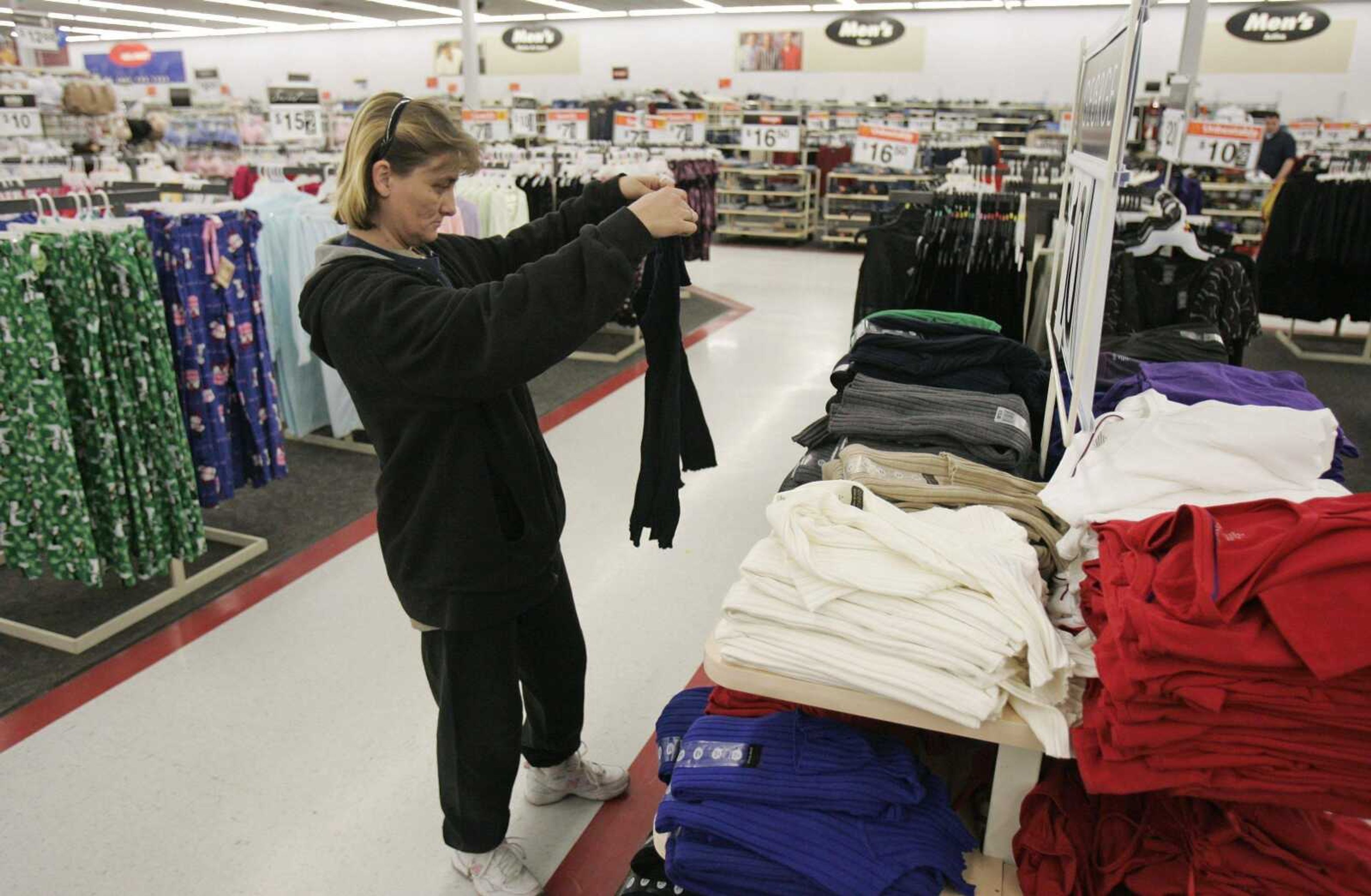Stores' dismal December means prices should fall
NEW YORK -- Dismal sales figures for the holiday shopping season are probably a sign of worse to come for merchants in 2009 -- not only more sharp discounts and cheaper groceries but probably fewer stores. Holiday spending was so anemic that even Wal-Mart didn't escape unscathed: It posted a smaller sales gain than Wall Street expected and cut its earnings outlook for the fourth quarter. ...
NEW YORK -- Dismal sales figures for the holiday shopping season are probably a sign of worse to come for merchants in 2009 -- not only more sharp discounts and cheaper groceries but probably fewer stores.
Holiday spending was so anemic that even Wal-Mart didn't escape unscathed: It posted a smaller sales gain than Wall Street expected and cut its earnings outlook for the fourth quarter. Macy's, Gap and a slew of others reduced their forecasts as well, mainly because of the huge discounts stores have used to draw in customers.
The nationwide picture was bleak: Same-store sales were down 1.7 percent for December, with many chains reporting declines of 10 percent or more, according to an index released Thursday by the International Council of Shopping Centers and Goldman Sachs.
For November and December combined, the drop was 2.2 percent -- the weakest holiday shopping season since the index was started in 1969. For all of 2008, sales rose just 1 percent, the weakest in at least 38 years.
"The blanket that has covered the North American consumer that has kept them from spending is heavier than expected," said Dean Hillier, partner in the retail practice of consulting firm A.T. Kearney.
The malaise was widespread -- kitchen gadgets to jewelry to clothes. Several stores such as Toys R Us and Macy's said business improved in the last weeks of December as shoppers pounced on the best deals, but people still cut back overall.
Among the many stores that reported steep sales declines were Sears Holdings Corp., which operates Kmart and Sears, as well as Abercrombie & Fitch, Gap Inc. and Saks.
Sales on new items for spring have already begun, fueling more concerns about the retail industry's health. A rash of store closings is expected as retailers navigate the deepening recession.
Disappointing sales of holiday gift cards mean stores probably won't see a big lift in business in January. Michael P. Niemira, chief economist at the ICSC, forecasts a 1 percent decline in same-store sales for the month.
Wal-Mart, the world's largest retailer, benefited last year as shoppers focused on necessities and switched to cheaper stores, but analysts say its disappointing December performance may signal that shoppers are pulling back even more. December sales were up 1.2 percent including fuel sales and rose 1.7 percent without. Wall Street was expecting 2.8 percent excluding fuel.
Wal-Mart said electronics sales were solid, clothing and jewelry sales were weak, and health and wellness items were the strongest.
Ken Perkins, president of research company RetailMetrics, expects Wal-Mart to cut prices even further, fueling price wars. That's good news for shoppers.
Rival store Target, which had been stumbling because it depends more on nonessential items like trendy clothes, said its same-store sales dropped less than expected. Target cut prices to gain market share and clear out inventories, but it says those moves will hurt its fourth-quarter profit.
Grocery store chain Supervalu Inc. has already said shoppers will probably pay less and be offered more promotions this year. The chain says customers are switching to cheaper food, like ground beef rather than T-bone steaks.
Some chains see a silver lining: Some of their competitors will probably have to close their doors.
Jewelry chain Zale Corp. reported a 22 percent drop in same-store sales but said business improved during the week leading up to Christmas and has also been better since the holidays.
"We believe that we are in a strong position to benefit from the winnowing of competitors," said Zale Chief Executive Neal Goldberg.
But for now, the picture is grim. Sears Holdings said its December same-store sales dropped about 7 percent, including a drop of nearly 13 percent at domestic Sears stores. Kmart sales fell only about 1 percent, suggesting that its low prices are drawing shoppers away from more expensive stores.
And Macy's Inc. cut its full-year earnings outlook because of heavy markdowns and said it plans to close 11 stores. Its same-store sales were down 4 percent in December, and more than 7 percent for November and December combined.
High-end stores fared far worse, and luxury items will probably get cheaper. Saks Inc. posted a sales decline of almost 20 percent, while Neiman Marcus Group was down more than 27 percent.
Connect with the Southeast Missourian Newsroom:
For corrections to this story or other insights for the editor, click here. To submit a letter to the editor, click here. To learn about the Southeast Missourian’s AI Policy, click here.






